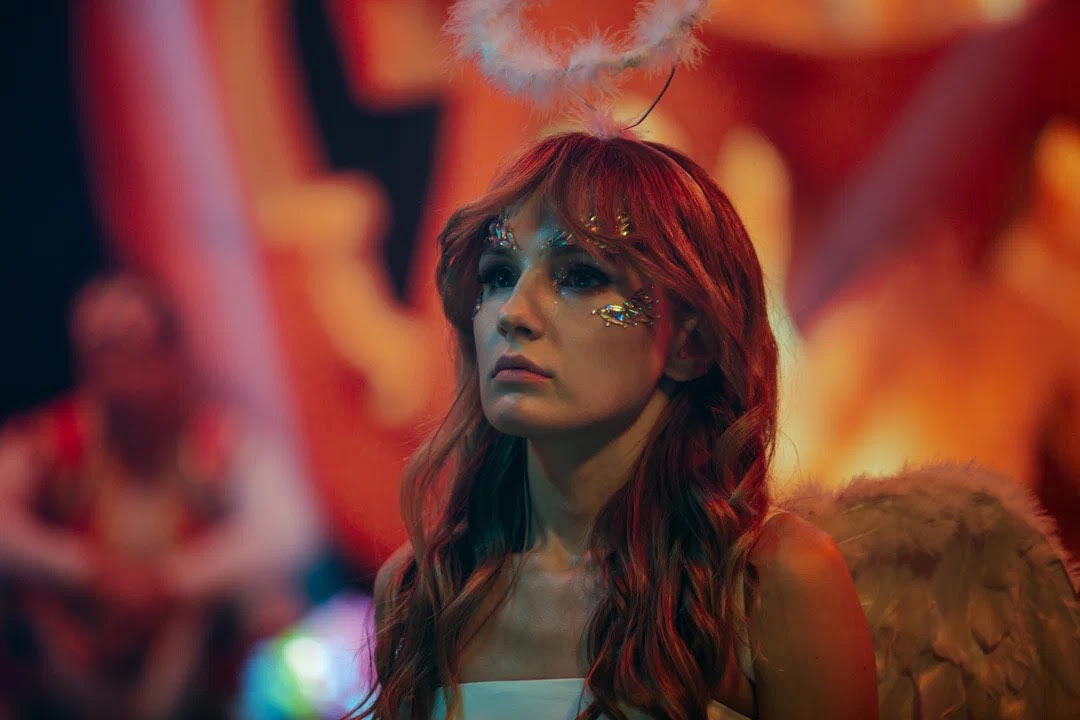«S nulya» - Series Review by Kinoafisha

The Starting Point.
Who among us hasn't pondered during a particularly unfortunate period of their life: "At what moment did everything go wrong?" Where is that point in time to which one could return with a time machine and start everything from scratch? However, Vasily Barkhatov's series "From Scratch" adds a quite specific historical period to this eternal question. And, as it turns out, it strikes a chord with the hearts of the audience, primarily women aged 30+, who, to put it mildly, do not particularly enjoy watching cool movies about the wild 90s (they were brutal, and fashion was so-so), because they had their own formative period, their own turbulent youth. And it was colored with completely different hues. And it is these very colors, moods, and sensations from Barkhatov's memories that he skillfully manages to extract from the minds of female viewers and bring to life on the screen. However, in order not to make the director the sole miracle worker, let's explore who else and how helped him to transport us back to the "fat zeros."
"From Scratch" is the story of three girls who studied professions at Moscow University in the early 2000s and lived their lives in Moscow clubs. Twelve years later, Lena, Natasha, and Dasha meet again as young women who have been shaped by life and try to solve their past and current problems. And of course, sex, drugs, and a criminally kitschy French manicure are the main ingredients of this story. However, it was necessary to add a touch of detective spice to it. At least to provoke the heroines to have a conversation and to set the plot in motion. And at the same time, to show that we have not strayed too far from "those times" in some aspects.

The most prominent and eagerly awaited character here is Natasha, played by Marusya Fomina. Impeccable, cold, and magnificent. She skillfully portrays the women of oligarchs who are far from being fools themselves. In "From Scratch," she adds a new shade compared, for example, to "Container" – a little daughter, with whom she softens at least a little, and an attempt to play her own 18 years, which were not that long ago in reality. But it is precisely there that the naivety and smile remained, which the actress had to recall in order to show how quickly those who wanted "cash, probably" grew up in those years.
We discovered Nadezhda Kaleganova this summer when she starred in the disaster film "Odna." But it is wrong to compare these two "retro" projects. Their audiences are too different. There is the resilient girl from the region who survives on the strength of her love, and the city rose Lena, who instantly unleashes all her demons, only to show how she deals with them. Perhaps her role can be called the most complex, because it is multifaceted and shows mood and state changes in seconds. Here we have bipolar disorder, desperate infatuation, and all kinds of intoxication - there is room for everything. The only drawback for Kaleganova is the wig she wears at "18." But if you also take notice of it, then everything else is played as it should be.

However, the true "shape-shifter" here is Dasha. Actress Victoria Klinkova possesses a completely charming and seemingly slightly outdated type of appearance. Almost a young Britney Spears. Her first appearance in the series creates a deceptive impression that the viewers are facing a caricature blond. But there are cunning and intelligence in this bright mind, as well as tragedies in her life that will last for another couple of decades. She embodies that stable life balance, the ability to survive in any conditions, with her friends on both sides. One has risen to the top, the other has fallen to the bottom.

This trio cannot exist without each other. In their dreams, it is easy for each of them to recall what we ourselves dreamt of in those same years, flipping through the same magazines. And their three lives are three different paths, none of which is seen by the creators as the fulfillment of their cherished dreams. Without condemnation, but also without charm, the screenwriter Anna Borisova describes it as if her own memories of the "time of possibilities." The tandem with theater director Vasily Barkhatov helps turn this nominally nostalgic detective story into action. Each episode is a parade of recognizable symbols of the time, but also an exercise in film experiments. The transitions between time periods on the screen occur through dramatically calculated transitions, rather than simply through black screens. Memories of the early 2000s, like memories should be, even of the most unpleasant episodes, are tinted with unnatural colors. Memory always does that to us. And the director's task was not just to tell a story, but to show how the heroines themselves recreate it, looking back not so far ago. The deliberate theatricality in the first episode, in the portrayal of club life, refers not so much to reality as to how music videos about that club life could be shot back then. And with each episode, Barkhatov adds more and more elements, using the entire range of tools, including animation, so that not a single thought arises in anyone's mind that these are documentary scenes of the early 2000s.

"From scratch," of course, aspires to visual truth, but only in terms of attributes. In fact, the viewers witness a merciless vaudeville, whose task is to show how we ourselves have changed over these 12 years and how nothing has really changed. After all, desires and choices are always the same. The opportunities are different. And it is definitely more comfortable to wear oversized jackets than tight Herve Leger bandages.
